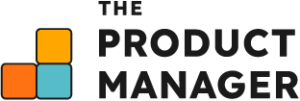There are millions of apps out there. Many are very successful, but most are not. What are the steps taken by successful app makers that distinguish them from unsuccessful ones? In addition, many people have ideas for an app but don't know where to begin. What are the steps you need to take to create a successful app? As part of this series, I had the pleasure of interviewing Maggie Rose Macar.
Maggie Rose Macar is the CEO and founder of zant., an app that connects people with high-quality mental health providers across more than 25 categories of services at unbelievably low costs. She began her journey after losing a close friend to suicide and struggling to find therapy or grief counseling that had same-week availability and was affordable for a “broke college student.” After a provider offered his services at $10 per session to help her through her darkest time, she turned her pain into passion and has made it her life’s mission to help those in similar positions easily access affordable and catered mental health support.
Thank you so much for joining us! Before we dive in, our readers would love to "get to know you" a bit better. Can you tell us a bit about your 'backstory' and how you grew up?
One would assume that growing up with two parents who were business owners would have sealed my fate, I actually focused my education on a potential career in the criminal justice system. I had always known that I wanted to help people in some capacity and I thought being a prosecutor was the way I could do that. However, after losing a close friend to suicide at the age of 19, I struggled to find mental health support until stumbling upon a provider who was willing to discount his services to only $10 per session.
He changed my life and got me through such a devastating and difficult time. This journey inspired me to return to college with a new focus on psychology. While in school, I was surrounded by young people who needed the same opportunity I had with low-cost services but were instead met with roadblocks that would stray them away from the help they needed. I felt a sense of urgency to do something but had no idea what. This led me down the road of nonprofit and advocacy work and eventually founding zant., where I dedicate my heart and mind to helping those struggling or curious to find support without roadblocks or barriers to entry.
Most of us have been around a lot longer than apps have. What were your hobbies and interests in your youth before anyone knew what an 'app' was?
Before having ‘apps’ and iPhones, I loved writing poetry, short stories, and art. I have always found beauty in words and deeper meaning. Aside from poetry, I would spend most of my spare time sketching a new piece or writing a new short story. I loved to sketch eyes, I’ve always believed that eyes are the gateway to the soul.
It has been said that our mistakes are our greatest teachers. Can you share a story about the funniest mistake you made when you were first starting? Can you tell us what lessons or 'takeaways' you learned from that?
I can definitely share a fair hand of mistakes, but as for the “funniest,” I would say that sometimes you just shouldn’t let yourself be convinced by a new intern to bring them on a big business trip! Originally convinced it could be a great learning experience, what we were really left with after the trip were stories to tell for years and a joke about Checker’s hamburgers and loving grilled cheese sandwiches (it’s a long story). The truth is: bringing someone “too fresh” can reflect poorly on your company and your leadership. Although the experience wasn’t the best, it has not discouraged me from taking chances on new hires, so as much as this person turned our trip from sweet to sour, I still find it important to share opportunities with new faces in the workforce… just with a bit more due diligence!
I tend to meet two types of app developers; people who are passionate about app development and technology and people who started an app because they saw it as a means to solve a problem. Which camp would you put yourself in, and how did you arrive there?
I most certainly would never have imagined myself to be in tech, so as much as I’ve come to enjoy technology and have found it increasingly interesting, I would place myself in the bucket of technology as a solution. After losing one of my closest friends to suicide, I knew there was a fragmented and broken mental health sector, especially for college students. Those in need are either on waiting lists for months or cannot find the specialized support they need and get bounced around, on top of affordability issues.
I decided to create zant. as a solution for accessible and affordable care to ensure others did not have to run into the same problems I did when looking for support in coping with my friend’s death. I was lucky to stumble upon a mental health provider willing to see me for a free consultation, but he told me he was $150/session and wanted to see me weekly. Being 19 at the time, I couldn’t afford $600/month. After leaving, he called me and offered to see me for just $10/session- his kindness opened my eyes to the idea that there are mental health providers who are here to simply just help.
Entrepreneurship is a marathon, not a sprint—though I suppose sometimes it's both at the same time. What kept you motivated to develop your first minimum viable product, and how have you kept your momentum since then?
Honestly, I think we have more momentum than ever before and I believe that momentum should never be stagnant or the same. Momentum should always grow in strength and size- you should outgrow the momentum you’re in from a minimum viable product (MVP) to a live product, to scaling a live product and moving into different verticals. My passion and dedication were and are solely based on the impact of my friend's death and the desire to help those struggling get actually affordable and accessible care as a preventative measure. There have been times, of course, when I may have felt a little discouraged or beaten down, but having drive means doing anything and everything to accomplish your goal and being completely obsessed with your goal along the way.
I would also note that having a strong team where each person has their own reason “why” is not only humbling, but fueling. When someone has a dip in performance, we have enough passion and determination to keep moving forward. Building momentum also requires steady action, even a thousand little steps will help build momentum toward greater strides.
Can you tell us a bit about your app? How does it help people? What do you think makes it stand out? What are you most proud of?
zant. is a mobile app offering over 25 categories of mental health support at low costs with discounted student and standard rates. We envision a world where mental health services are accessible, affordable, and still remain high-quality. With zant., every interaction ever made is completely made by you, the controller over your mental health journey. We believe that “one size does not fit all” when it comes to finding the right support and that finding support should be a simple, stress-free, and hopeful experience. We offer student sessions for $25 or less with always-free consultations to avoid any affordability issues while allowing clients to book the same day or week with a provider to get timely support.
Besides being actually affordable and offering the largest variety of mental health services on the market, zant. is just downright simple to use! At our core beliefs, every client should control their mental health journey, so unlike some other apps in our space, we allow users to select tags and choose to view providers based on their selections or browse all providers. Our goal is to help people meet the proper professional for their niche or specific needs and with the ability to ‘shop around,’ clients can see who the best fit is for them.
I am so incredibly proud of creating an app that my little sister, my partner, and our team actually use, stress-free, in their own mental health journeys- and better yet, I am so proud to be able to service even one person with the proper support they needed, when they needed it most.
Approximately how many users or subscribers does your app currently have? Can you share with our readers three of the main steps you've taken to build such a large community?
We currently have over two-thousand downloads and are servicing over 500 users weekly. In regards to one of the first steps we took in building our community, the truth is: I submerged our team and myself in other successful ventures and entrepreneurs' success to grow a user base. We learned so much each and every day from the successes and failures of others.
We started off by only seeing maybe 5 downloads per week, to 20, to as much as 100+. Our success in acquiring these customers came from grassroots efforts where word of mouth is strong and advertising during times when other competitors were not. We’ve been working with other startups, local media, and small businesses to continue our grassroots efforts. We have also continued to do research and understand our clients while having a serious priority on better equipping our providers for those clients. This all has helped us bring together a beautiful network of professionals who became advocates for zant.
What is your monetization model? How do you monetize your community of users? Have you considered other monetization options? Why did you not use those?
Originally, we focused on being an under $30 subscription platform for both providers and client users. We realized quickly that each of our providers needed additional marketing and advertising to break through the noise of the booming telehealth market, which led us to sell marketing packages and fund full week-to-month lead-generation campaigns. After analyzing and conducting surveys, we realized that by adding value to our providers and helping them grow, we could help serve our clients better.
We shifted our focus on adding value to our providers past our marketplace and went from a monthly subscription to an annual membership. This helped us cover the costs associated with our extensive vetting process and proper advertising efforts to ensure success for our providers. At zant., we also want to make sure we’re sticking to our truth of providing mental health resources as roadblock-free as we can, so monetizing off users wouldn’t allow us to live up to our mission.
Can you tell our readers about the most unconventional tactic you've used to test, market, or gain feedback on a product? What did you try, what was unique about it, and what was the outcome?
I think the most unconventional tactic we ever used was cold-calling therapists and asking them if they would be willing to work with us for under $25 per session. They laughed and said “heck no!” We then realized that we were simply asking the question wrong, this taught us a lot about communication and the psychology behind the proper brand copy. We eventually changed the question to: how many students could you work with at $25 per session and built a cap system where a provider can have the discretion to select 1 or more students each month (their cap) at such a low rate.
What are some of the strategies you have used to improve your products and build on their success?
A big one is surveying and regular “rip apart” meetings with the team! We have conducted several surveys with our user groups to better understand their value, goals, favorite features, and suggestions or recommendations for new or better features. Additionally, we take time as a team to rip apart our product and ask ourselves “what could we add to this app to make it a dream to use?” Prompting ourselves with “if money is not an issue, what would we add to better the experience?” Brainstorming with the team in an ideal world where the money would not be an issue brings forth ideas that many do not share as they believe it is impossible.
Thank you. Here is the main question of our interview. Based on your experience and success, what are the five most important things one should know in order to create a very successful app?
1 . You absolutely cannot do this alone. It’s so easy for entrepreneurs to fall into the trap of overwhelming doom that there is “no one else” who can help. The truth is: no one else will share the same level of passion and drive as you because this is your baby, but there are people out there who will bring their own passion and “reasons why” to the table to join in on the crusade.
In other words, to grow, you need a solid team. It was difficult to let people in and allow them to help me since this is something that I’m so passionate about, without my team though I would not have grown into the leader I am today.
2 . Building a team doesn’t have to cost thousands of dollars at the beginning. There are two options for you:
The first is that you can try to meet a like-minded person or multiple people and work on your vision together while working other jobs that pay the bills. This is very common and something we started off with.
The other option is to become an internship site. Working with students to help them gain experience and college credit is a massive winner for you. Most internships are 4-6 months, which gives you that time to grow together, understand strengths and weaknesses, as well as find a parallel in continuing to work together. Not only can working with students help your company keep moving, but it can bring you some of your founding members of the c-suite without costing full-time salaries from the jump. Our current core team all started as interns in our earliest stages and I could not be more thankful for their dedication and hard work.
3 . Get in the habit of keeping a daily task list for yourself and allowing that to grow with even the most minor tasks. Crossing those off throughout your day will keep you motivated to get things done, while also keeping track of all the tasks it took to build your company from the ground up. Building a daily task list as a team will help delegate and keep everyone focused on hitting proper milestones. When our task lists are empty at the end of the day, it is so refreshing and satisfying to see the progress we’ve made toward our collective goals across all departments.
4 . Understand how to identify “dead weight.” As a young team, it can be very easy to befriend one another and begin to make excuses for someone’s shortcomings. Try to remember that numbers don’t lie. If someone has been incredibly productive over time and has hit a plateau, don’t just cut them off- sit down with them and review the numbers. Try to share how their lack of productivity affects the bigger picture while also taking time to ask them how they're doing and feeling about the role and responsibilities. It is critical to conduct regular team meetings and individual check-ins with each team member to challenge them to reflect on their position. I try to stick with the “three strikes and you’re out” rule. For example, strike 1 is not fatal and is highly “fixable” with a simple check-in to understand where that person needs nurturing. Strike 2 becomes a “concerning” habit or pattern. Strike three is fatal because it has now become dangerous to the team, influencing the productivity of KPIs and decreasing scalability. At this point, cutting this dead weight (while never easy) will actually change the dynamic of your current team in only the best ways.
5 . Once you get past that “desperately scrappy” stage, and begin fundraising over 300K, you will begin to learn and notice that everything becomes about results. Driving results does not mean over-exceeding expectations week after week, which is impossible. Instead, this means accomplishing at least one success each day of the week to push the company forward. Results become something to measure, learn from, track, and grow with. Your results become your compass toward your ultimate goal.
If you could start a movement that would bring the most amount of good to the most amount of people, what would that be?
We already are, with zant. We want to create a stress-free approach to getting the mental health support you need, when you need it and becoming the only app you ever need to do so. Our goal is to provide roadblock-free mental health services while ending the stigma around mental health. If I can leave people with one tip of advice, I would say: be kind, be compassionate, and be patient with your loved ones, you truly never know what someone is struggling with.
How can our readers further follow your work online?
Visit the zant. website or download the app here.
For more content like this, subscribe to The Product Manager newsletter.


